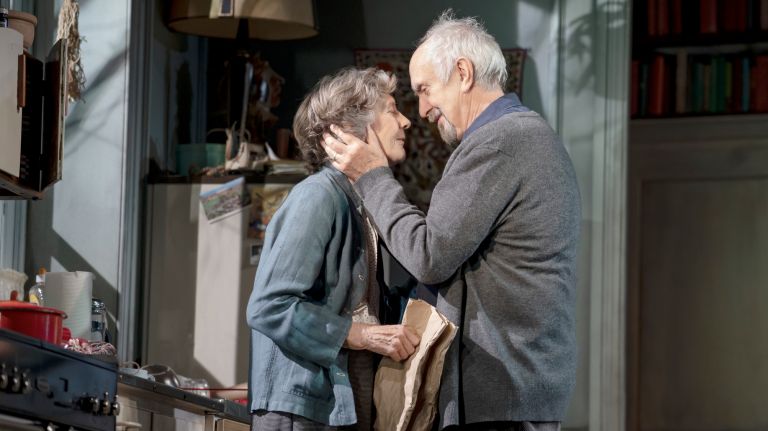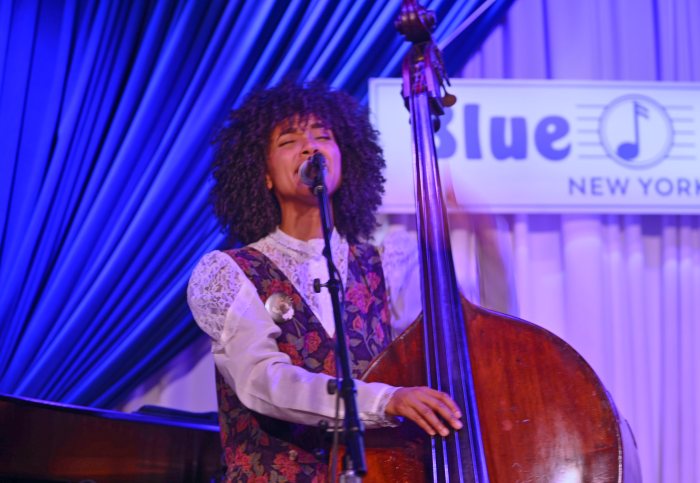
‘The Height of the Storm’ runs at the Samuel J. Friedman Theatre through Nov. 17. 261 W. 47th St., heightofthestorm.com.
You can never be too sure of what’s going on or who each person is in “The Height of the Storm,” a disorienting and somewhat gimmicky family drama by Florian Zeller. Translated into English by Christopher Hampton (“Les Liaisons Dangereuses”), the play is intended to make the audience experience the painful effects of dementia along with its aging protagonist, played by Tony winner Jonathan Pryce, who is joined by Eileen Atkins.
It is being produced on Broadway by Manhattan Theatre Club, which previously presented Zeller’s curiously similar “The Father” three years ago at the same theater.
As the curtain rises on a sharply angled kitchen of a country house outside of Paris (strikingly designed by Anthony Ward), André (Pryce), a famous writer, is seen staring out the window, silent and fixed, as if gazing into an endless, hypnotizing abyss.
Based on tense conversations between him and his adult daughters Anne (Amanda Drew) and Elise (Lisa O’Hare), it would seem that André’s wife Madeline (Atkins) recently died. However, it is not long before Madeline materializes and joins the others in conversation. Some of her responses suggest that it may have actually been André who died.
Things continue to get stranger with the arrival of a mysterious woman (Lucy Cohu) who claims to be an old friend of André but may actually be a former lover — or perhaps she is the director of a retirement community. Similarly, a man (James Hillier) turns up who might be either Elise’s boyfriend or a real estate agent. With each twist and turn, André becomes increasingly uncertain and combative.
“The Height of the Storm” is essentially a fuzzier, opaque reworking of Zeller’s “The Father,” which also depicted an elderly man named André (then played by Frank Langella) suffering from severe dementia in an intense and jarring manner. The principal difference is that “The Height of the Storm,” in taking on a jumbled structure and always trying to play games with the audience, feels thin, repetitive and too conceptual.
Notwithstanding, Jonathan Kent’s exacting production, which was previously produced in London’s West End, makes for a powerhouse showcase of two leading English stage veterans. Pryce’s vigorous, King Lear-like theatricality and trembling vulnerability is effectively contrasted with Atkins’ coolness and tartness.





































